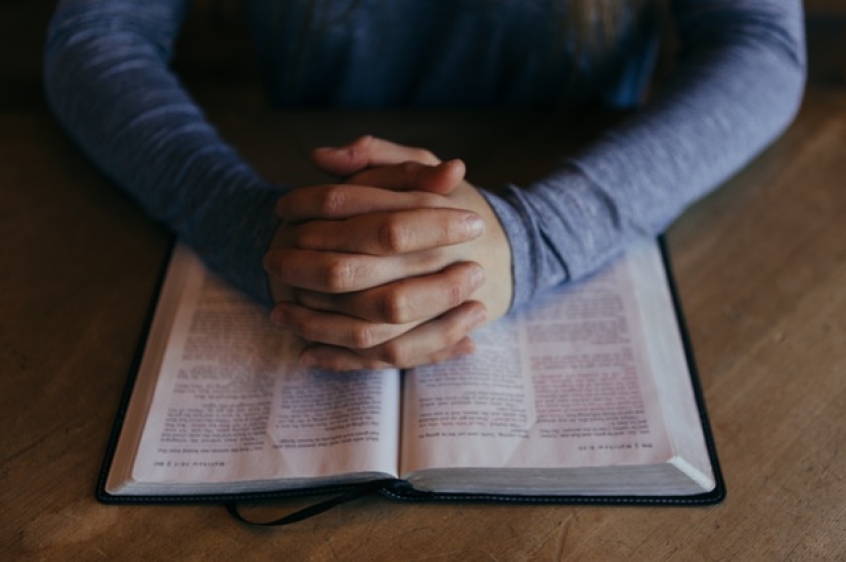
Just before the Hebrews are about to finish their wanderings in the wilderness and take possession of the land of Canaan, which is to be Israel, there is a pause. They are outside the strategically important town of Jericho, just across the Jordan, encamped outside it. Joshua 5:10-15 tells of how the miraculous supply of manna ceased and for the first time they "ate some of the produce of the land".
Joshua himself, who has taken over the leadership of the people from Moses, is looking over the city, perhaps working out how to assault it. He sees a man standing by him with a drawn sword and doesn't recognise him, so he asks the logical question: are you for us or for our enemies? The completely unexpected answer: "Neither, but as command of the army of the Lord I have now come." In other words, this is a divine, angelic presence, and God himself would fight the Hebrews' battle.
At one level, this relates to a particular historical situation. Joshua needed to know whether the man was friend or foe. But there's a deeper level too, at which the angel's answer is profoundly challenging.
Without realising it, Joshua has asked whose side God is on. The answer is that it's the wrong question. God is on no one's side. The real issue is whether we are on God's side.
We cannot call on the "army of the Lord" to reinforce a particular cause or to fight our battles for us. God is not at our disposal, a sort of magical power boost for when we need extra energy. He is not a supernatural trump card that gives us victory over enemy forces.
We live in a very divided time, socially, politically and religiously. We read about Muslims attacking Christians and it's easy to assume that God has to be with us in our battle against 'them'. There are social and moral issues, too: many Christians are very uneasy about things like same-sex marriage, and there are often stories about Christians facing discrimination at work or elsewhere because of their faith. Britain has been through a traumatic referendum on its membership of the European Union which has seen both sides claim a Christian mandate. There's an election coming up in the US in which both candidates, Hillary Clinton and Donald Trump, are highly controversial, and Christians are weighing in for both of them in God's name.
God does bless us and help us. But the lesson of this story is that instead of assuming he's on our side, we need to ask whether we're on his. This way of looking at it makes us think about his character. It makes us think about our own reactions to situations and whether they're in line with that. It makes us seek and submit to God's will, rather than assuming he'll fall in with what we want.
The pattern in the rest of the book of Joshua – and the rest of the Old Testament – is that whenever the people think they know best, disaster strikes. Whenever they pay attention to God, they succeed. So ultimately this is a passage that leads us to prayer and humility, listening to God rather than taking him for granted.
Follow Mark Woods on Twitter: @RevMarkWoods

















